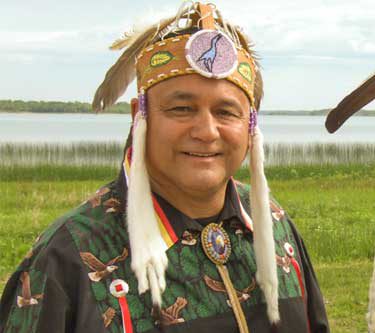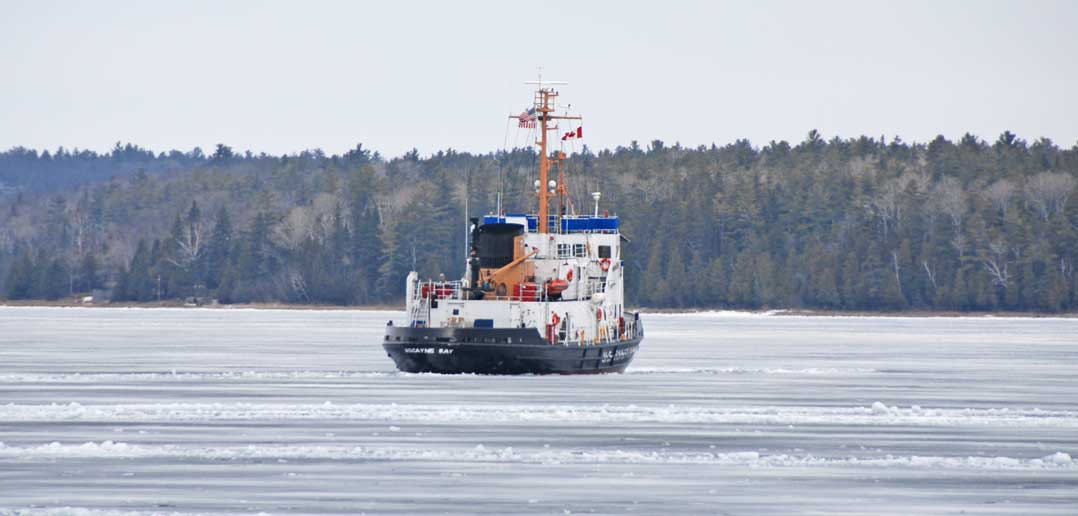NIPISSING—Just promising more money for First Nations education won’t make it better, says Anishinabek Grand Council Chief Patrick Madahbee, unless First Nations have a real say in how the money will be spent. He feels it is poor legislation and will receive a lot of opposition across Canada.
“This wreaks of the last legislation that was proposed, with few changes at all. You can put lipstick on a pig, but it is still a pig. This is a bad piece of legislation,” Chief Madahbee told the Recorder last week.
Chief Madahbee was responding on behalf of 39 Anishinabek Nation communities to Bill C-33, Canada’s latest response to First Nations demands for equity in federal funding for education. “They just don’t get it, either that or they’re hell bent on legislating First Nations to death. A true Anishinabek education system is not about control but about educating our children hand in hand with their cultural identity intact.”
Minister of Aboriginal Affairs and Northern Development Bernard Valcourt introduced the Bill, First Nations Control of First Nations Education Act, in the House of Commons, last week. The proposed legislation will provide First Nations students with the education standard, supports and opportunities that most Canadians take for granted. It will require that First Nations schools teach a core curriculum that ensures students can transfer seamlessly between schools on and off reserve, that students meet minimum attendance requirements, that teachers are properly certified, and that First Nation schools award widely recognized diplomas or certificates.
“Our government knows that good education can change a life–that’s why I am so pleased that we have made reforming First Nations education a priority and introduced the First Nations Control of First Nations Education Act. This will help First Nations access the skills they need to live healthy and successful lives-this is good for First Nations, for Canadians, and for our country’s future,” said Mr. Valcourt.
Acknowledging that First Nations are the best place to know what their youth need to succeed, the legislation recognizes the responsibility of First Nations in the administration of their own education systems on-reserve. To support First Nations control of First Nations education, as announced on February 7, 2014, the government of Canada has committed to providing for stable, more predictable statutory funding that increases annually at a rate of 4.5 percent.
The legislation follows years of unprecedented consultation, discussion and studies, and reflects the efforts of many First Nations individuals and organizations from across Canada. The legislation also contains a number of changes from the October 2013 draft legislative proposal to address the five conditions for success identified by First Nations as necessary for the success of First Nations students, said Mr. Valcourt.
Mr. Valcourt said out the Act proposes to create a joint council of education professionals, comprised of experts in education, to provide advice to First Nations and the government of Canada in the implementation of the Act and on the development of regulations. The Joint Council’s role would be to support First Nation Band Councils and First Nations Education Authorities in the improvement of their education system, as well as play an oversight role ensuring that the ministerial powers provided by the Act are exercised with the benefit of the First Nations perspective and used as a last resort.”
“The Minister of Indians Affairs has all the power and authority over First Nations education while taking on no legal responsibility whatsoever–that’s the reality of the kind of control this government is talking about,” said Chief Madahbee. “They talk about the FNCFNEA (First Nation Control of First Nations Education) like it’s the best thing First Nations could ask for, but this legislation is not anything close to what First Nations have been asking for.”
“We asked for an integration of language and culture, but they’re making French and English mandatory with an option of First Nation language, if the minister approves it,” continued Chief Madahbee. “We asked for fair and equitable funding, so they announce vague promises of increased funding after the next federal election with no specifics on how it will be allocated.”
Chief Madahbee said the government’s idea of First Nation control of First Nation education is to allow First Nations to be administrators of legislation that’s forced onto them. “If a First Nation school fails to meet provincial standards, regardless of being vastly underfunded, the minister has the legal right to put the school under third party management–that’s real control of First Nation education.”
“If they really want First Nations to have control of their own education then they’ll close the funding gap on education immediately and recognize our own processes that were developed by First Nations teachers and parents. It’s really that simple,” said Chief Madahbee.
“They’re using political tricks to convince the public that they’re doing what’s best for First Nations by highlighting big budgets without any specifics on where the money will go,” continued Chief Madahbee. “Meanwhile, First Nations are expected to administer policies they don’t agree with, but this time they’ll have a federally-funded, federally-appointed oversight committee as a government watchdog to ensure First Nations don’t veer from government control.”
“We don’t need more legislation and oversight, what we need is equitable funding and for the government to completely get out of the way. In this modern era, teachers working in First Nation schools should be getting paid the same wages as their counterparts working in an average Canadian town or city,” said Chief Madahbee.
First Nation children should have access to the same quality of school supplies and equipment as other Canadian children do when they go to school. First Nation children should be taught their own language, just like English and French kids are, explained Chief Madahbee. “Our chiefs have told us that we need to exercise jurisdiction, especially when it comes to educating our children. Allowing federal and provincial powers to dictate what’s best for us in our own communities is not jurisdiction, that’s government control of First Nation education and that’s what the government wants, not what First Nations want. Our kids in our communities expect us to fight for their right to a fair and equitable education, and that’s exactly what we as leaders must continue to do.”





